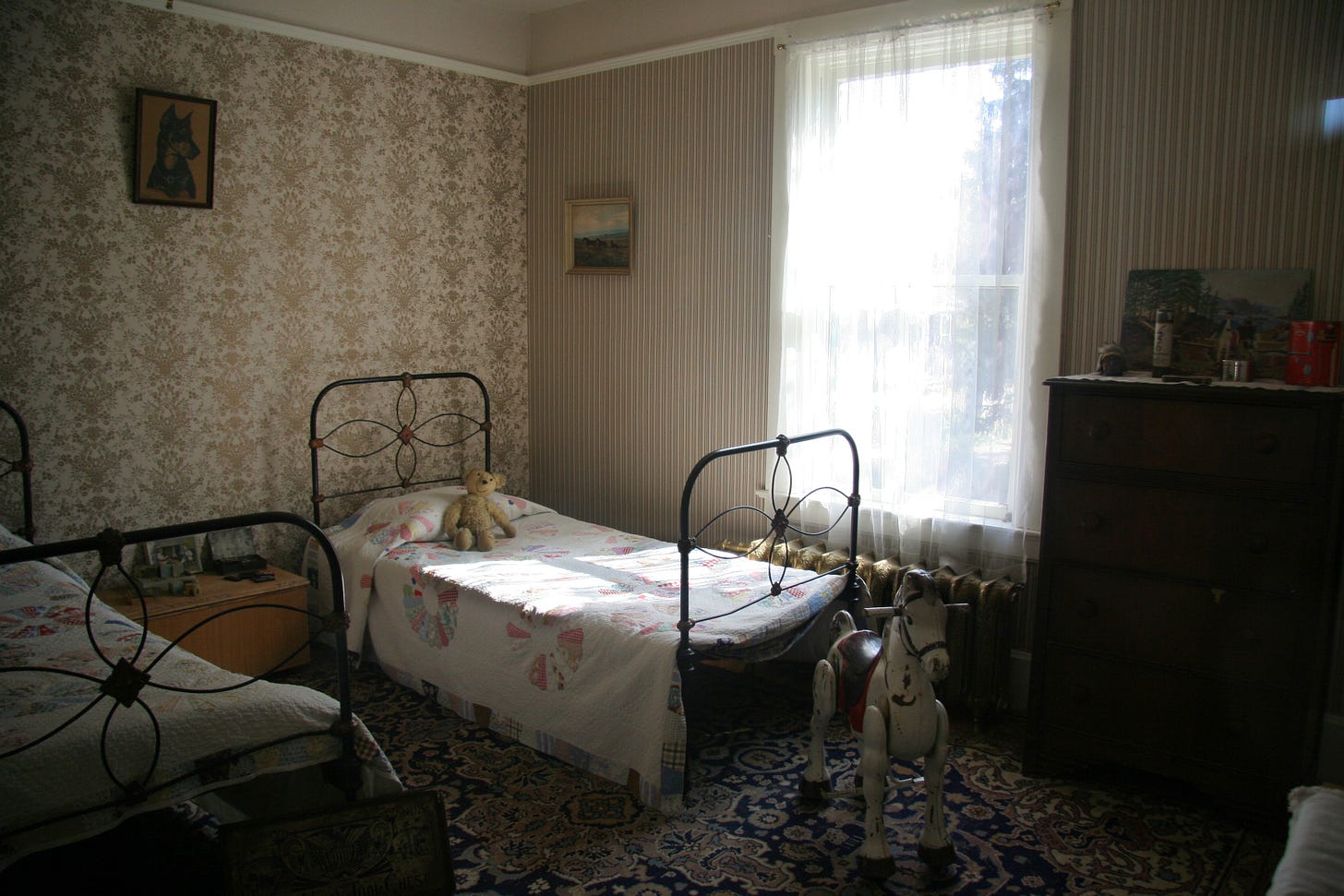What We Left Behind
Retrieving the treasures from childhood’s end…
The first rule in Fairytale land is once you start your quest, there’s no turning back. You may think this journey is only temporary. You may expect an eventual homecoming, even plan on it. You will probably never notice how or when you met that definitive moment, crossed that point of no return. But the thoughts and feelings that carry you through have changed you and there is no home to return to.
The Fairytale world is a stark one. It spares no one.
Sometimes, as readers, we can’t wait for the character to wake up and get out of that place as quickly as they can. Cinderella comes to mind. But sometimes when we’re with Hansel and Gretel and we know something is not right, we gather up our pebbles. We desperately want to go back home. And we do, but only for a short time. It won’t take long for us readers to sit with them in the darkening forest, feeling the weight of complete and utter abandonment.
What does this mean? Why is this outward journey so prevalent, so necessary. What hidden meaning is here?
Fairy tales are not new phenomenon. They’ve been told and retold for millennia. Some inner human impulse has kept them alive for all this time. But for many of us, present day fairy tales are just a product of animated movies and large picture books. If we think of them at all, we think of them in sentimental ways, sweet stories for children.
I blame the Grimm brothers.
When they first published these stories, they called it “Kinder- und Hausmärchen,” (Children's and Household Tales). With a quick swipe of their editorial pen they relegated these ancient stories to the nursery or kitchen. They single-handedly determined that their content no longer held meaning for anyone but poor servant girls or very young children.
Wow!
When you read books or watch movies where a character is searching for some lost wisdom or artifacts that can help them understand the world, they go to great lengths. They sail the seas, go into the darkest caves and climb the highest mountains. They don’t go into the kitchen or the kids’ book shelves. They don’t ask themselves why these silly and childish stories have survived this long. They don’t wonder what gems of truth may lie within. They don’t recognize the profound themes that march across the page, always there in the plainest of language, the simplest of plots.
Kids do.
If we can go back to what it felt like as a kid we can see that everything in those years went straight to the heart. Kids feel these stories. When we cross that line into self consciousness, when we begin our adultifying journey we begin to lose that connection with experience. We stop identifying with our storybook friends. We become distant observers, no longer able to inhabit the page the way we once did. We have left home.
How fitting that children and fairy tale characters have the same path.
We can’t ever truly become childlike again. We have to live in a new world, a new home. Like the fairy tale castle and the hard won freedom we’ve earned, it provides us with a different way of life.
We are changed.
But we need not forget. We once knew things. We once could see how life could be lived. Our beloved characters struggled with all the terrible impulses so familiar to us then and now. They also knew the most heroic of virtues and actions. Ones borne out of love, service and the need to right a wrong. These fairy tales were and still are blueprints for life.
Children’s stories indeed!
We can’t read them as children ever again. But we can take our memories and pass them through a prism of life long experiences. We can bring them to our new home. We can marry our innocence and experience. And we can start to understand why all the stories end happily ever after.
Photo by Alyssa Shroeder-Stock canuckgurl22@deviantart.com



This is glorious. I can't stop reading your posts. I often think about the inherent tragedy of growing up - what we lose when we leave childhood behind. It's more than nostalgia, it's a (necessary) severing of self. You've captured that here.
"...to marry our innocence and experience." Yes